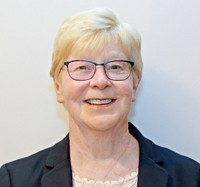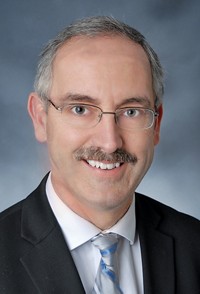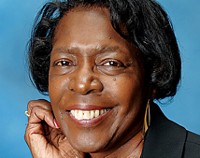Advertisement
Grab your lab coat. Let's get started
Welcome!
Welcome!
Create an account below to get 6 C&EN articles per month, receive newsletters and more - all free.
It seems this is your first time logging in online. Please enter the following information to continue.
As an ACS member you automatically get access to this site. All we need is few more details to create your reading experience.
Not you? Sign in with a different account.
Not you? Sign in with a different account.
ERROR 1
ERROR 1
ERROR 2
ERROR 2
ERROR 2
ERROR 2
ERROR 2
Password and Confirm password must match.
If you have an ACS member number, please enter it here so we can link this account to your membership. (optional)
ERROR 2
ACS values your privacy. By submitting your information, you are gaining access to C&EN and subscribing to our weekly newsletter. We use the information you provide to make your reading experience better, and we will never sell your data to third party members.
Policy
ACS Awards: A Call For Action
by Vicki H. Grassian , Valerie J. Kuck
March 12, 2012
| A version of this story appeared in
Volume 90, Issue 11

Along with six other societies, the American Chemical Society is partnering with the Association for Women in Science in a National Science Foundation-funded program entitled “Awards: Advancing Ways of Awarding Recognition in Disciplinary Societies.” The goal of this effort is to develop processes that increase the diversity of scientific award recipients and to use the lessons learned from this work to formulate best practices for other disciplinary societies.

Two years ago, ACS formed the Awards Task Force to critically review the nomination and selection processes used in the society’s national awards program, to identify ways of increasing the diversity of ACS national award nominees and recipients, and to recommend appropriate changes to ensure equity in the selection of award recipients.
The task force has reviewed the gender of the nominees and recipients for ACS national awards granted from 2007 through 2012. The society has 62 national awards. Fifty-two of them are presented annually, nine are given out biennially, and one is awarded triennially. Because individuals can be renominated for a given award for up to three consecutive years, the pool of nominees reflects the summation of the nominees for an award for each of the six years reviewed rather than the number of distinct individuals who were nominated for an award.
Analysis of the data showed that women were underrepresented among nominees. Women accounted for only 13% of the nominees—substantially less than their fraction of the membership, which is 21%. Moreover, women represented 13% or less of the nominees for 44 of the 52 awards that recognize outstanding technical accomplishments. A dozen technical awards had no female nominees.
Women were also underrepresented among recipients. Over the six-year span, women received just 12% of the technical awards. But that percentage was significantly and positively affected by the fact that women had done extremely well in being selected to receive several specific awards. More than 33% of the recipients for seven awards were women. In sharp contrast, there were no female recipients for 31 of the technical awards. Clearly, immediate action is needed to address the underrepresentation in the nomination and selection of women receiving technical awards.
During the past two years, the task force has taken a number of actions. It has supported the formation of canvassing committees for all of the awards having few or no female nominees. Those committees are responsible for assisting ACS in the identification and nomination of deserving women as well as individuals from other groups that are underrepresented in the awards program.
In other efforts, the task force prepared supplementary information for the award selection committees. And it developed a best practices document that describes ways for ensuring that all nominees are evaluated fairly. To further assist selection committees, the task force provided committee members with a summary document, video presentation, and PowerPoint presentation on implicit associations. Several studies in the social sciences have shown that implicit biases and nonconscious hypotheses and stereotypes—often about competence—unintentionally discourage diversity in nomination and selection processes. Selection committee members are asked to discuss the implicit association materials before they commence their discussions on nominees.
In another effort, ACS surveyed previous selection committee members on the criteria they used in choosing an awardee. Analysis of the responses showed that there is a wide variation in the criteria used to evaluate nominees. In collaboration with the Board Committee on Grants & Awards, the task force is developing a list of consistent criteria to be used by all selection committees. This set of criteria is expected to result in a more equitable distribution of the awards.
Despite the society’s efforts to promote diversity in the chemical sciences, our analysis of the data clearly shows that many technical awards have few or no female nominees or recipients. This situation must change, and you can play a key role in making this happen. We call on you, the ACS membership, to identify and nominate qualified women for ACS national awards. Specific information on each of the awards is posted on the ACS website (www.acs.org/nationalawards) along with the material that must be included in a nomination package.
We also ask you to volunteer to be on a canvassing or selection committee that acknowledges outstanding technical accomplishments in your field of expertise. If you are appointed to a canvassing committee, enthusiastically work toward broadening the pool of applicants and finding nominators who can prepare competitive nomination packages for women and underrepresented minorities. If you are on a selection committee, make certain that all of the nominees are treated fairly. You can make a difference!
Members of the task force hope and expect that their work can help increase diversity in divisional, regional, and local section awards, as well as prestigious lectureships, by laying the foundation and putting processes in place that can be used by these selection committees. With your help, ACS can take tangible steps that demonstrate it is an inclusive society.





Join the conversation
Contact the reporter
Submit a Letter to the Editor for publication
Engage with us on Twitter